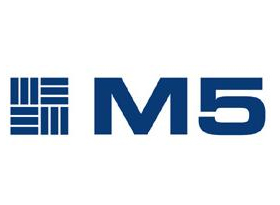M5 Hosting and new Managed Firewall Cluster service
M5 Hosting, a worldwide leader in customized, high performance Linux and BSD dedicated server hosting solutions, today introduced its new Managed Firewall Cluster service, a next-generation enterprise security solution immediately available to the company’s dedicated server clients.
The company previously offered standalone dedicated firewalls. Today’s new solution offers more stability and operates in concert with a pair of larger, higher-capacity, highly-available firewall systems. Within the cluster, each client is placed in a separate Cisco context. A context is a private, isolated instance that shares common hardware.
“Our Managed Firewall Cluster service offers higher capacity, stronger performance, and greater fault tolerance than similar products on the market. It represents a substantial upgrade from our previous infrastructure, and will enable us to deliver the level of hardware-based security our clients require,” said Michael J. McCafferty, CEO of M5 Hosting.
The Managed Firewall Cluster is fully virtualized, allowing clients to rapidly scale without having to change firewall hardware for additional capacity. Moreover, client servers do not need to be in close physical proximity to the firewall hardware, because the firewall is integrated into M5 Hosting’s core network infrastructure. Pricing for the new service starts at $99 per month.
Other hosting providers often use SOHO-class (small office, home office) firewall solutions. While affordable, SOHO firewalls are often unable to handle enough sessions for a busy server, and routine backups can quickly tax bandwidth capacity on a SOHO firewall.
In July, M5 Hosting acquired over 13 miles of dark fiber, providing an additional 10Gbps of throughput between the company’s two data center facilities in San Diego. The additional capacity will enable the company to offer a wider variety of other specialty services, including multi-site load-balancing, multi-site clustering, and other multi-site services requiring low-latency synchronization of data.
M5 Hosting maintains a high-performance, route optimized network. The network features redundant carrier class Cisco 6509 routers with powerful SUP720-3BXL engines and maximum memory to handle the full and ever-expanding global route table. Like all multi-homed provider networks, M5 Hosting utilizes BGP for fault-tolerant routing over multiple Internet connections. The network also relies on multiple Gigabit connections to Tier-1 carriers and direct peering with over 100 other networks.
